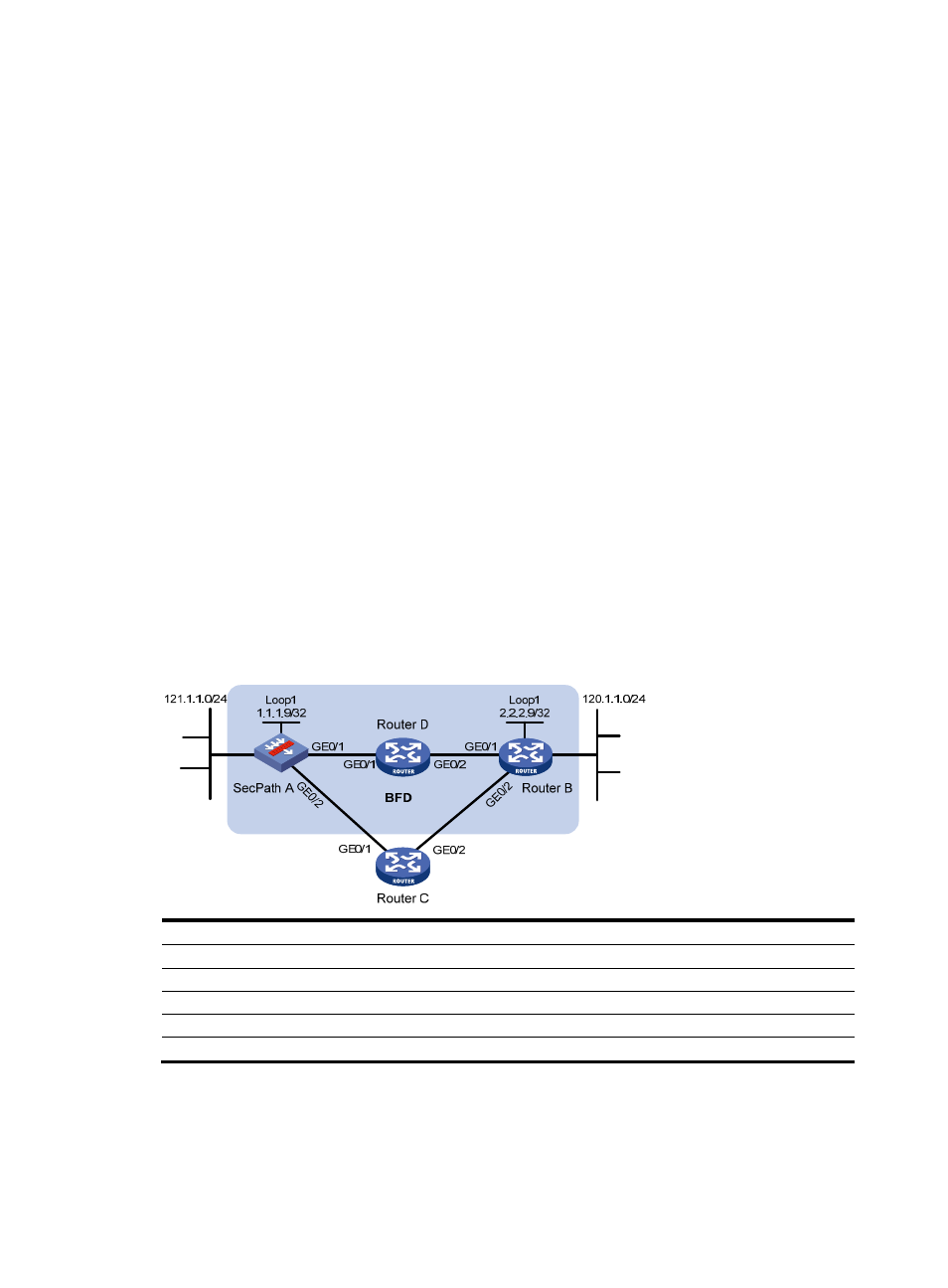Network requirements, Configuration procedure – H3C Technologies H3C SecPath F1000-E User Manual
Page 369

344
Public Routing Table : Static
Summary Count : 2
Static Routing table Status : < Active>
Summary Count : 1
Destination/Mask Proto Pre Cost NextHop Interface
120.1.1.0/24 Static 65 0 10.1.1.100 GigabitEthernet0/1
Static Routing table Status : < Inactive>
Summary Count : 1
Destination/Mask Proto Pre Cost NextHop Interface
120.1.1.0/24 Static 60 0 12.1.1.2 GigabitEthernet0/1
BFD for static routes configuration example (indirect next hop)
at the CLI
Network requirements
In
, SecPath A has a route to interface Loopback1 (2.2.2.9/32) on Router B, with the output
interface GigabitEthernet 0/1. Router B has a route to interface Loopback1 (1.1.1.9/32) on SecPath A,
with the output interface GigabitEthernet 0/1. Router D has a route to 1.1.1.9/32, with the output interface
GigabitEthernet 0/1, and a route to 2.2.2.9/32, with the output interface GigabitEthernet 0/2.
Configure a static route to subnet 120.1.1.0/24 on SecPath A, configure a static route to subnet
121.1.1.0/24 on Router B. Enable BFD for both routes so that when the link between SecPath A and Router
B through Router D fails, BFD can detect the failure immediately and SecPath A and Router B can
communicate through Router C.
Figure 239 Network diagram
Device Interface IP
address
Device
Interface
IP address
SecPath A
GE0/1
12.1.1.1/24
Router B
GE0/1
11.1.1.2/24
GE0/2
10.1.1.102/24
GE0/2
13.1.1.1/24
Loop1
1.1.1.9/32
Loop1
2.2.2.9/32
Router C
GE0/1
10.1.1.100/24
Router D
GE0/1
12.1.1.2/24
GE0/2
13.1.1.2/24
GE0/2
11.1.1.1/24
Configuration procedure
1.
Configure IP addresses for the interfaces. (Details not shown.)
2.
Configure BFD:
- H3C SecPath F5000-A5 Firewall H3C SecPath F1000-A-EI H3C SecPath F1000-E-SI H3C SecPath F1000-S-AI H3C SecPath F5000-S Firewall H3C SecPath F5000-C Firewall H3C SecPath F100-C-SI H3C SecPath F1000-C-SI H3C SecPath F100-A-SI H3C SecBlade FW Cards H3C SecBlade FW Enhanced Cards H3C SecPath U200-A U200-M U200-S H3C SecPath U200-CA U200-CM U200-CS H3C SecBlade LB Cards H3C SecPath L1000-A Load Balancer
